What's the Problem, Papi?
Internet Daddy-ism and Coddling, Fetishization, and what "Latino-looking" actually means. (Miguel O' Hara is hot but it's getting weird.)

So, “Across the Spider-Verse” happened, and wow did it come with a bang! Smashing a lot of box-office records and displaying a great deal of color, both across the board and cast, it’s been really amazing to see. All I can think about is how many kids that look like Miles, Miguel, Hobie, Gwen, or Margo (Spider-Byte) finally got to see themselves on the big screen and will find a costume they don’t have to explain to very weird (and often racist) adults. But kids are not the only ones who saw the movie, it was a hit across all demographics and is quickly becoming one of the biggest movies of the year.
So with any big movie, comes a great deal of fan response. Most of it has been very interesting to watch, with a lot of great discussions on backgrounds, the power of self-determination, overprotection, and queer identities. However, there’s been a bit of a viral craze over Miguel O’Hara, a character that lies somewhere between antagonist and guardian. I think the film explores his trauma and refusal to grow from it in an interesting way, creating a culture of fear to prevent the possibility of losing everything all over again. It’s an interesting discussion for sure, but that’s not what the emphasis is on. It’s his attractiveness and latino identity.
The fanart community has been having a ball putting Miguel in every sexual act and pose you can think of, and it started off pretty ordinary for any popular adult character.
But then came the leashes…and the muzzles…and the awkward spanish. Oh, we’re starting to have a sexualization problem.
I don’t think there’s anything wrong with finding a latino character or man attractive, I think the emphasis on his ‘latino-ness’ is where it starts to get very muddy and strange. He says less than 10 Spanish words total in the film, but we’ve started to create this google-translated bilingual sex monster that will die if he doesn’t say “Cariño” every 5 minutes. It’s feeding into the fetish.
Do you understand how uncomfortable it is to see this type of art? Especially by people who aren’t latino or speak a lick of Spanish? It’s terrifying. It’s like you’re watching someone be stripped of all personality, bounded in ropes, and stamped with “LATINO” in big blocky letter and ink. It’s dehumanizing and It feels like we’re seeing the reemergence of the whole’ Latin Fever’ phase in pop culture in the 00’s and 2010’s.
And it isn’t anything new, we’ve seen these sex-based stereotypes since the start of Hollywood, with the “Latin Lover” (a masc-presenting latine, often dressed in flamboyant or sleek attire, with an unquenchable passion for sex and romance) and the “Spicy Latina” (a femme-presenting latine with curls, curves, and a cursing problem that is irresistibly untamable) being some of the earliest ways to end up on the big silver screen for my people, most times not even played by latinos (more on that later).
These stereotypes take away the personal and make the superficial their main point of marketing and judgement:
The ‘latin lover’ is doomed to being the deluded daydream of suburban white woman looking for an escape from the monotony of suburbia, imagining the thrill of an off-the-edge deadly hombre with an accent as thick as his slabs of drug money. These men are often killed off for aesthetic mourning before his white counterparts whisks the damsel back to their sanctuary (a two-story $200,000 home somewhere in Utah probably).
The ‘spicy latina’ is doomed by her own misfortune of having the rage of her father, the spite of her mother, and the color of both. She is seen as cruel, loud woman with no social awareness with an accent that rivals her male counterpart in thickness and unintelligibility. She is the sex symbol, the dirty prize, but will always be seen as the object of domination or the dominator herself, not a person in need of affection or worth the energy being with.
Gloria from ‘Modern Family’ is a good example of taking this stereotype and turning it on its head. While she continues to be plagued by extremely nasty comments from men and is pinned with sensual criminality (we get it, all latinos have a family with criminal record the size of a tax return), she is still incredibly smart, a good mother, and above all else: respects herself. She knows she’s a catch and often makes her husband Jay and perpetually-horny neighbor Phil the actual butt of the joke.
But these are characters, what are we supposed to do for a fictional person?
Well, nothing. We can’t do anything because they’re intangible objects that can be positioned by anybody, especially the creator or artist. However, we know how media influences real-life behaviors and these archetypes in film feed us messages of how to interact, exploit, and expect the worst from latinos, but does it in a way that feel erotic and masochistic. The pain of holding on to a love not meant to be with someone who will die for you while not being able to understand half of what they say? It strokes one’s ego, and ego (just like love) is a powerful thing. And if nobody is there to check it, it’s only a matter of time before the dotted lines between fiction and reality start to bleed together.
Part I: Papis, Internet Daddys, and Fetish Galore
Papi (pah-pee) masculine noun
Dad (coloquial)
A term of endearment
(see: Daddy)
So, the word “Papi” has always been a word that’s been very popular amongst non-latinos in its secondary definition. It’s a coloquial word (originating from Central America) that draws from the word “Papa”, which literally means father. I know this, you know this, we all know this. Okay, moving forward.
When latinos use it, it’s mostly used in the first way, or as a term of endearment for male partners or friends, sometimes even family members (my mom calls me papi, again it was our word first don’t be weird). Not really in the same sexualized way as non-latinos, it’s more similar to Honey or Baby. But when westerners found it, god did they waste no time bastardizing it.
Enter: Oscar Isaac and Pedro Pascal
Latinos are finally being seen in hollywood in roles that are not defined by crime, colonization, and drugs (Diego Calva my beloved, we will get you out of the 1900’s and the Netflix machine). This has been an amazing thing to see, especially as a person looking to work in the film industry myself. However, when a new toy comes into the market of Hollywood, as we’ve seen with the recent flux of queer relationships in cinema, people tend to have a hard time distinguishing the lines of character and actor (see: Kit Connor and his character Nick Nelson in Netflix’s Heartstopper).
From this rise, two people seemed to have captured the eyes of everyone: Guatemala’s Oscar Isaac and Chilean Actor Pedro Pascal.
They have been in everything from Stars Wars to MCU shows (Moon Knight) to Netflix moneymakers (Narcos) to critically-acclaimed HBO programmings (Scenes of a Marriage and The Last of Us), you could not escape those names and faces if you tried. Good! I’ve been a huge fan of both for forever and wish them all the love and praise they’ve deserved for so long.
After appearing on these shows they’ve begun to garner a lot of fans and general public attention, which has helped catapult them into the mainstream. Being older, attractive (i don’t give a fuck if you don’t agree, your mama does) men has put them in the coveted ‘Daddy’ league. The only real requirement to being in there seems to be knowing how many ‘Bush’ presidents we’ve had. I think the terms ‘dilf’ and ‘daddy’ terms have been converted into more affectionate terms, describing older men that are handsome, kind, and appear non-threatening. If calling men daddy is what you want to do, sure go ahead! I think the word is funny when used in a respectful (with consent and not framed with weird age-gap related characteristics) way, hey I use it sometimes too (with friends as a joke/compliment, again with consent)! Either way I’m not really your father, and if the actors encourage it, what’s the harm?
Well, that’s the thing: I think we’re starting to use Daddy as a get-out-of-twitter-hate-free card for ‘Papi’.
And Hollywood is capitalizing on that.
.
it’s even gotten to the the point where Bella Ramsey, Pedro Pascal’s co-star in The Last of Us, is unsure how he really feels about it anymore after a very grueling press cycle where every interview and article was obsessed with calling him ‘The Internet’s Daddy’.
Of course he was okay with it at the beginning, who doesn’t like being the object of adoration and affection? But when your entire career and performances are being eclipsed by a term, in a way I’ve never really seen to the same degree like other Hollywood actors, I can’t help but wonder how we ever got to this point and if you would still okay with it. All press is good press, I guess?
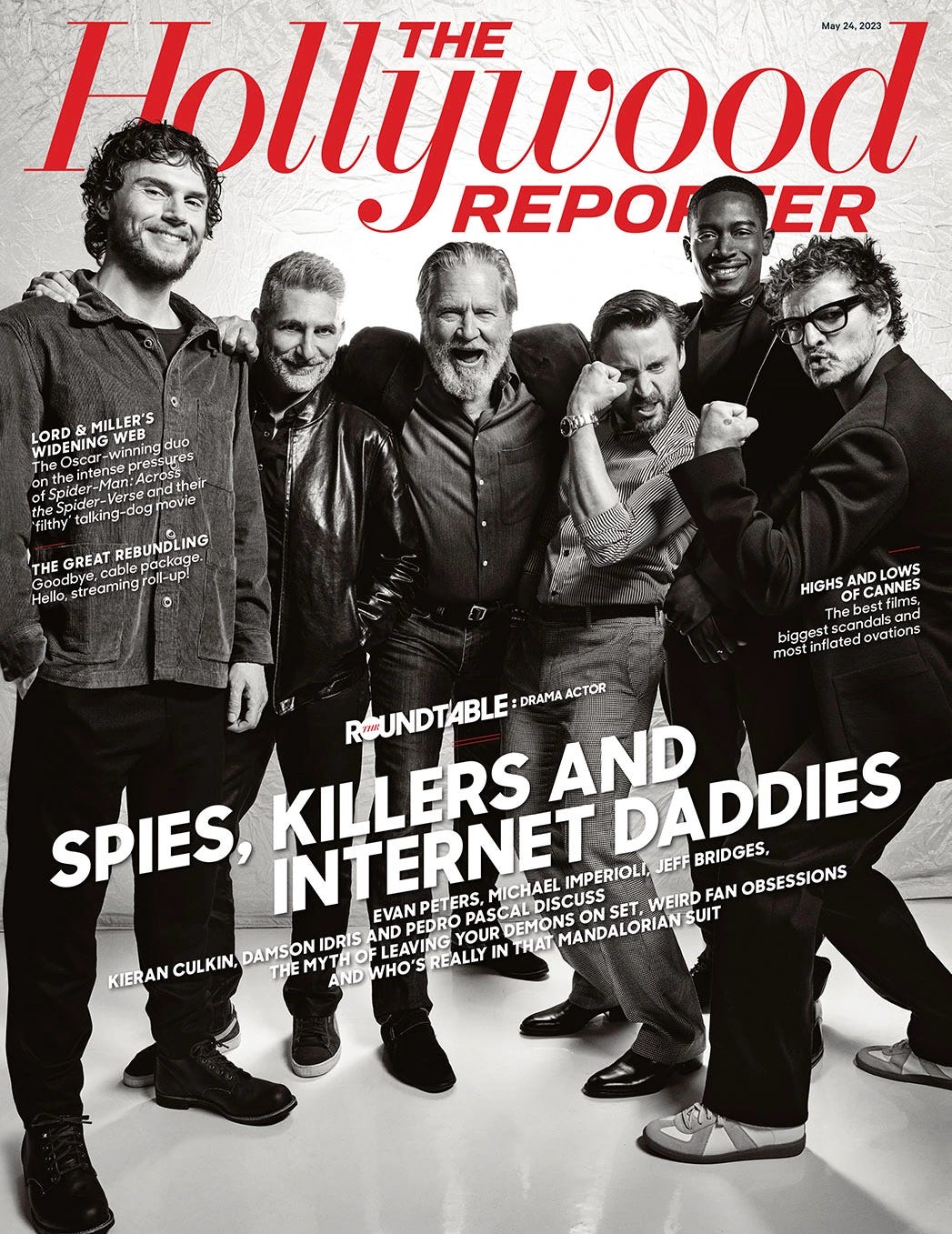
Oscar deals with this too, but to a much lesser degree. He’s more known for his acting chops and chemistry with his co-stars, which is better i guess (I’d personally rather be known as the guy who sniff Jessica Chastain’s armpit on the red carpet than be asked to read thirst tweets everyday for 2 years, but maybe I’m different).
And we can’t forget about the fans. Thirst tweets are a (not) normal part of the twitter fame cycle, and I’m sure most of them come from a place of no harm or malice. However, sometimes the tweets are…bizarre? Like you don’t need to tweet clips of them speaking spanish about FOOD and call it sexy. Spanish is not as sexy of a language as you guys think it is (watch sex scenes of movies in spanish and you will realize what I’m talking about), so I’m truly puzzled as to why, outside of fetishization of latinos, that very unsexy conversations…are sexy to you.
In response to the very odd behavior by White Hollywood, a lot of Oscar and Pedro fans have started to “babygirl-ify” them. Which is an interesting strategy to say the least.
Part II: Coddling and Moral Cannibalism
When something is not liked on twitter, it is going to be debated until the wheels come off it and you end up having a whole different conversation than the one you started with. You know that tweet that’s like:
Twitter is the only places where well articulated sentences still get misinterpreted.
You can say I like pancakes, and someone will say “So you hate waffles?”
- @bravocoole on twitter
That’s genuinely what ended up happening.
You can no longer find sexual scenes hot, you can’t find hot people attractive, and god forbid you make a silly tweet about a character being gay or having ADHD. We’re losing our greatest creative minds to the erasure of free-speech (annoying people on the internet who make real-life people their comfort characters). So, I decided to put on a little trenchcoat and bowler hat and ask a bunch of latino stans of Pedro and Oscar what their thoughts were on it! I like to think of it as a fusion between guerrilla journalism and media (fan) studies.
And the general consensus, as sad and funny as it is: White people really ruined everything.
A lot of them are really happy with their new-found fame, it gives them representation and helped to create more diverse characters for latinos to play. However, they’ve also experienced harassment and death threats from other fans for calling out a lot of the subtle racism and fetishization that has occurred since. A lot of them don’t really like the way they’ve been used as pawns for the hollywood machine in their quest to position latinos as exotic, desirable mannequins and it also makes them extremely uncomfortable that the fans have started to become posessive over them in a way that infantilizes them. I talked about this in a previous article (He's Not A BabyGirl, He's a Bastard), but when fandoms don’t know what to do in situations where either the fandom or celebrity is thrust into discourse, there tends to be a trend towards playing defensive. The defensive play? Make him a grown baby. Doesn’t know what taxes are, doesn’t know their own social security number, never had an awkward interaction at the CVS trying to buy personal items, never woke up drenched in sweat over an embarrassingly silly nightmare, they just don’t have a single thought in their head besides breakfast and fan service. And like I said in that article, it’s just so…weird? Like I understand in theory why you would do it:
if celebrity X does a bad thing, babying them lessens the pushback and allows a more accepting redemption arc. if fandom X does a bad thing, babying celebrity X makes your criticism seem a lot more urgent and justified than it might be, because you’re the only one in the scenario with the ‘awareness’ to know better even if it might be misplaced.
But here’s the problem, these aren’t teen stars or even young adults…these are grown men with grown fanbases. And the babygirl schtick has run dry and has been misused for very bad people (Johnny Depp I pray you die every night like a child prays for snow), there’s no need to do it over most, if any, scenarios. Let it go, and just confront the problem and call it what is it. Fetishization and lack of boundaries.
Part III: What does “Latino” look like? (and how fetishization can erase identities)

When discussing Latino fetishization, I can’t help but notice how, other than all its flaws and violence associated with it, it also acts as another tactic to influence what the image of latino men look like. Everybody who gets called Papi or Latin Daddy or any other weird combination of Spanish (Gringo Edition) and English is visibly tanned skin or of lighter complexion. They obsess over the ‘noses’ they have, the ‘eyebrows’, and the ‘exotic look’ they have in comparison to their non-latin counterparts. That’s obviously a problem because, and you can all say it with me:
Latino is not a race!
It’s an ethnicity, and literally anybody from Cameron Diaz to Jenna Ortega to Maria Yong to Laz Alonso IS latino (I’m not debating you on what is or isn’t latino, take it up with the US Census and the dictionary). There is literally no look, and all the aspects you like in them is either due to fetishization of “mestizo” features (mixed white and Indigenous) or because of the white-adjacent beauty standards placed on minorities, often both.
Now this is not me asking for y’all to start fetishizing black latines, but I want y’all to understand how the image of what latinos looks like and what’s marketed as attractive is always going to affect who gets heard and seen within the community and diaspora as a whole. I’m just a (mixed white + Indigenous) latino, so despite facing racism and xenophobia, it will never compare to the isolating experience of black latines both inside and outside American racial systems [because believe me, latin countries are are still very racist]. My identity at the end of the day, while not respected, is still seen.
There’s only so much justice I can do this conversation, so I’ll be recommending a video from Hollywood actors and books from some amazing afro-latine writers:
Readings:
Panama in Black by Kaysha Corineald
The Afro-Latin@ Reader: History and Culture in the United States by Miriam Jiménez Román and Juan Flores (more of a compilation)
Racial Innocence: Unmasking Latino Anti-Black Bias and the Struggle for Equality by Tanya Katerí Hernández
Let’s also quickly recognize some very talented Black Latines in the industry:
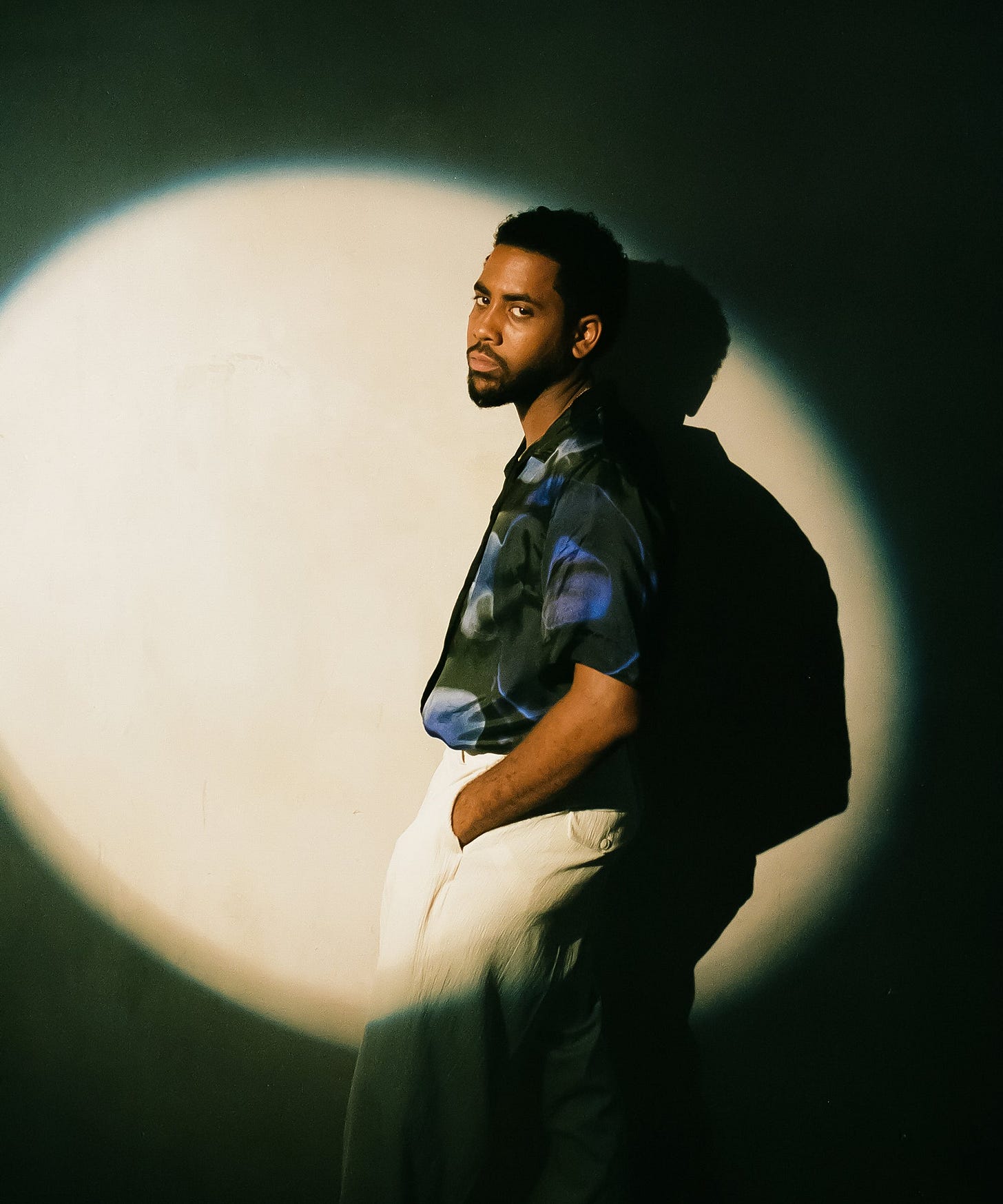


“So, what does that have to do with you?”
(tw / predatory behavior and mentions of sexual harassment)
If you’re still here, thanks for reading this to the end. This was a pretty long one, and it took a lot of time to prepare for. This part isn’t necessary to read, but I think it’s important because it might seem like I’m complaining for the sake of others and carrying a burden that isn’t mine, but I wanted to say why I did write on it.
I really struggled knowing how to start or end this newsletter, because I’m trying to be responsible with my words and not paint with enormous, broad strokes while trying to explain everything that’s happened in the last 10 years of latino representation and ‘attention’. So I think I’ll try telling my own personal story.
When I was 5 years old, I heard the word “Papi” for the first time. It was one strange scene: a white woman and a man that looked like he could be my uncle or neighbor was touching her in a way I didn’t really understand at the time. I asked my mom about it and had a very awkward lunch with her that day about what our words can mean and when its taken, it can mean something else. I wasn’t sure why she used the word “taken” that day, because it’s just words right? You can’t steal a language. But that weird shame I felt over the moment became something that followed, and I start calling mi papa just…dad. It felt like a dirty word and I didn’t know how to talk about it with my parents and they just assumed I had start to assimilate to my surrounds after moving here.
I would hear it again at 13, from the clerk at a local grocery store. I rode on my bike to get Maseca (a type of corn flour) and Cinnamon sticks. My grandparents had finally been allowed to remain in the country and we wanted to celebrate it with a little party. I wanted to prove I was old enough to do something for my mom, mi mama, and so I rode that mile down the hills to the store. The clerk was the same one I always saw growing up, I’m not sure if it was her store or where she ended up, but she was always very nice. But something was different when I went alone. The store felt colder, and the aisles felt longer. The Piñata were so high up but the blue walls felt so crushing and like there were little holes in them that she could watch me from. I got to the counter, making sure not to drop anything and she complimented me on how mature I was. She said I was starting to look a lot like my dad. I don’t really like my dad, but I’m sure she meant well. She said she was happy my mom now had another man in her house. I’m not sure why this time was different than last week. Every second ticked by in my blood and I just wanted her to hand me the change. She did, but she put white hand over mine, cupped it and said “Hope to see you next week here too, Papi.” and I just nodded. It felt like she held on forever but it was probably only a few seconds. I took my stuff in the “HAPPY TO SEE YOU” generic bags and put them on the handles of my bike, and just started started going. The hill was higher than I remember on the way down, and the bags felt like they were going against me. I made it home, dropping the Maseca bags on the kitchen floor and went in my blue bedroom, which I asked my parents if I could change the color of the next week. I don’t know how much was just my child brain and how much was real, but I would cry and make it a hassle to bring me along before I would ever see that store again.
Before and since then, I’ve been asked invasive questions by other students, had my fair share of incredibly awkward texts on dating apps [btw saying “Hola Papi” as an opening line should send a missile to your house], had my opinions in film and academia contextualized with:
“he probably didn’t grow up with this/over here, he doesn’t know any better.”
and have gotten the odd sexual comment and touch at bars. I’ve recieved twitter DMs after posting selfies that have made me really considering turning off messages as whole. But, I’ve just accepted it as a part of living in the body I have. I’ve tried feeling empowered by it all in some way and it doesn’t always work, because I’m rearranging the motives of somebody who doesn’t see me like I see me, all of myself.
While it’s not okay, I recognize that it’s also sometimes powerful to be craved. Reclaim it. Use it to your advantage if you can, because otherwise we’re just suffering for the sake of it.
I’ve reclaimed a lot of my culture since I was a kid, and I’m very proud of my heritage and the people who raised me. But I sometimes wonder, when I pass that empty storefront with a ‘For Lease’ sign in front, does she know I didn’t want to be around town that week? And when I grew up in my racist hometown, do they know I craved leaving them behind? I’m probably the only one who really remembers those moments, and sometimes I’m the only one who ever really cared.
But I’m happy I’m all settled now, and those words don’t affect me personally like the did before. But I still think I’d rather just be called “Papa” in the future.
I’d like to thank everybody who helped encourage this newsletter, as I was feeling very stuck after the ‘Annoying Girls’ and Shiv Roy posts. I’ve been overwhelmed with the love for the articles so far and they’ve helped me feel confident in writing once again. Special thanks to Kota and Siyyan for helping me actually pump this out, and an acknowledgement to my group-chat members who help me with some creative and info decisions, this is as much of me as it is you! (Rebooters, Psych Ward squad, and Pipis gc)
Look out for the next newsletter in a few weeks! Follow me on twitter for updates and silly tweets (same username as the name of this newsletter)! Be safe and have a nice day! :)



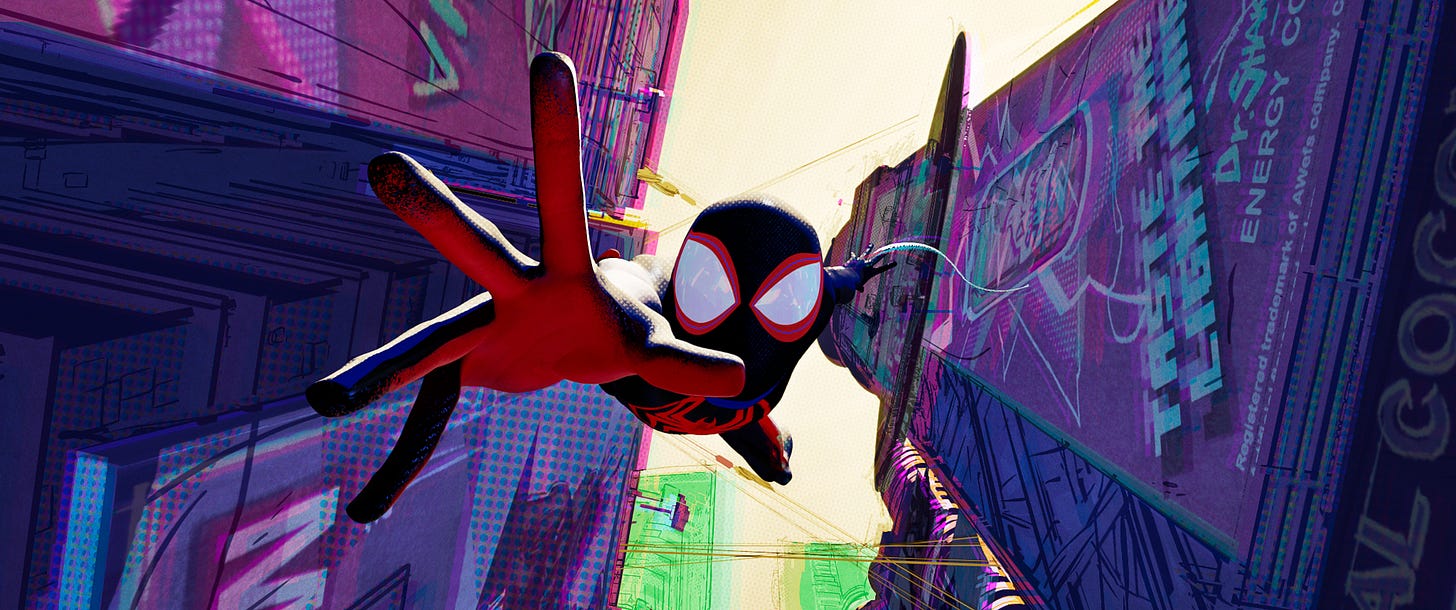
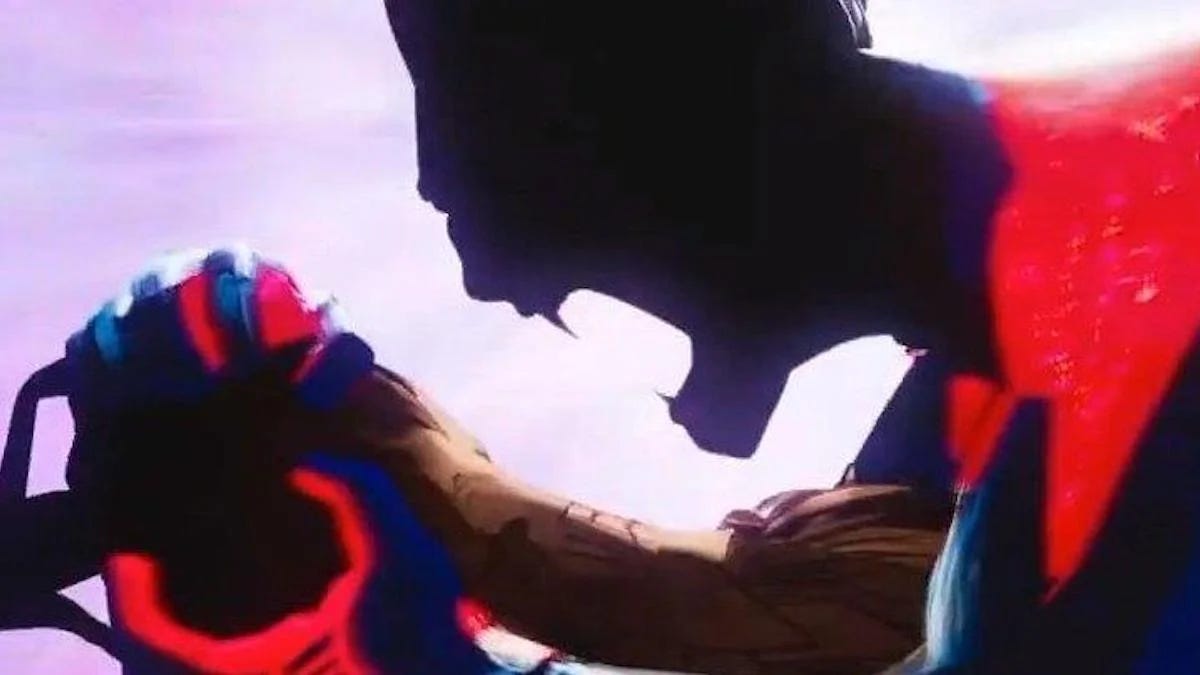
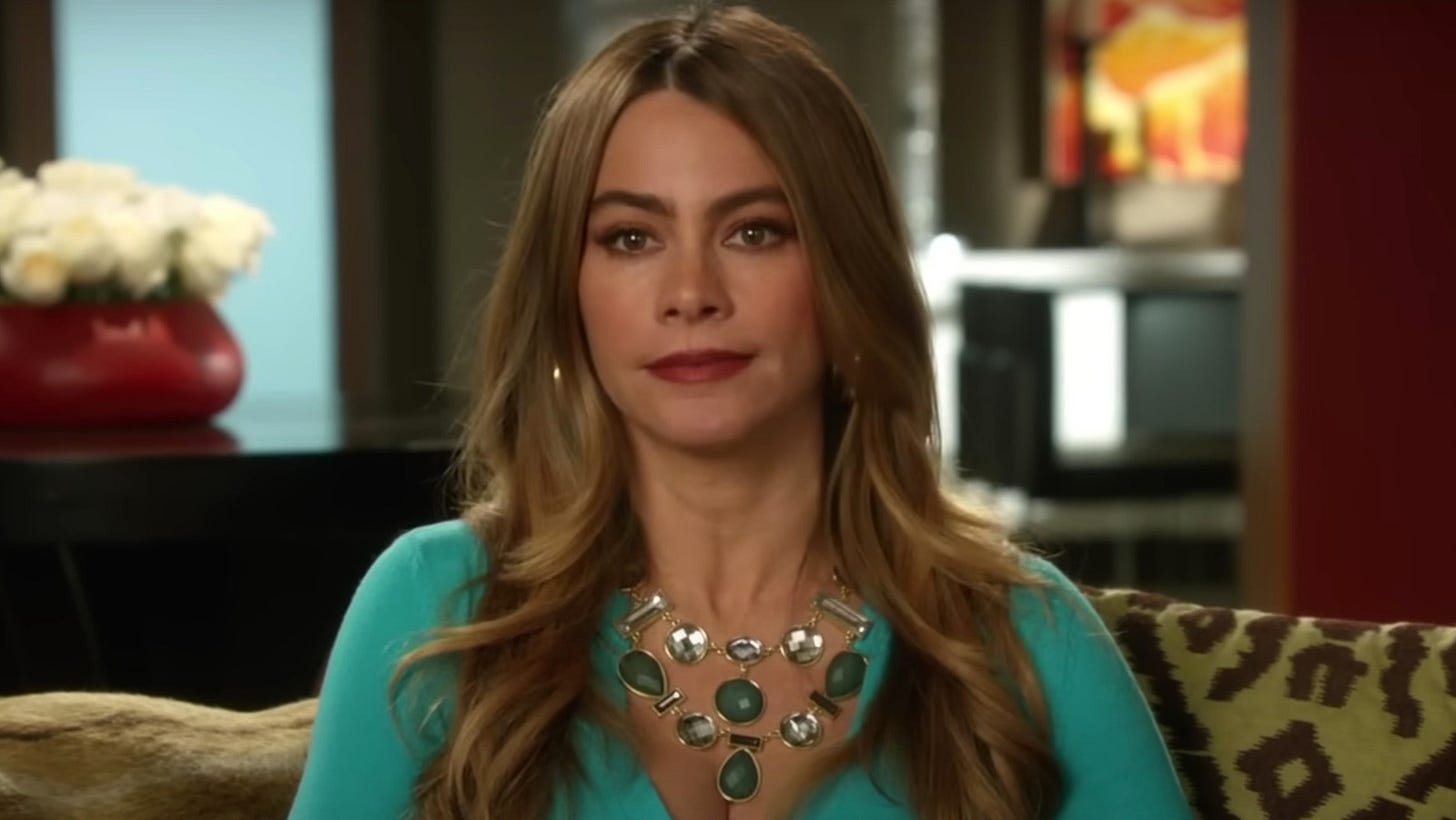
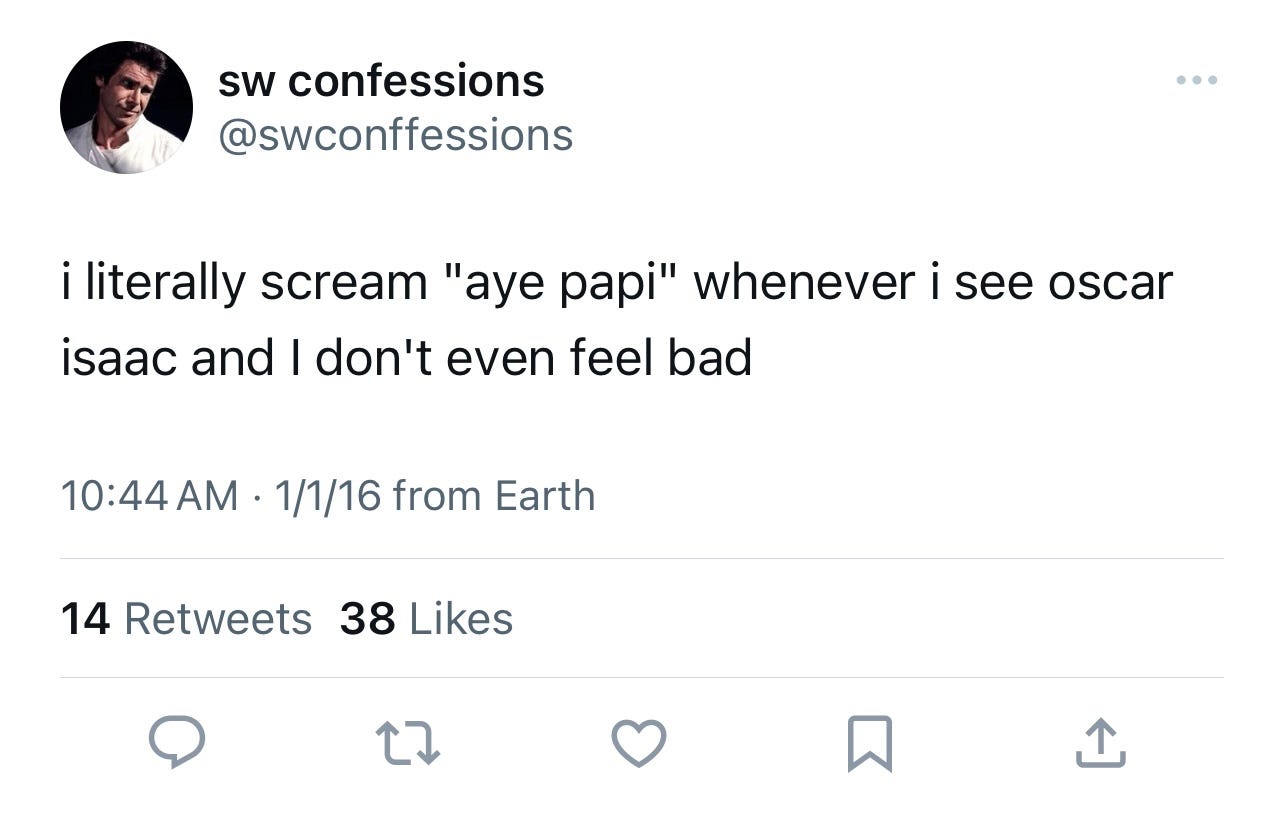
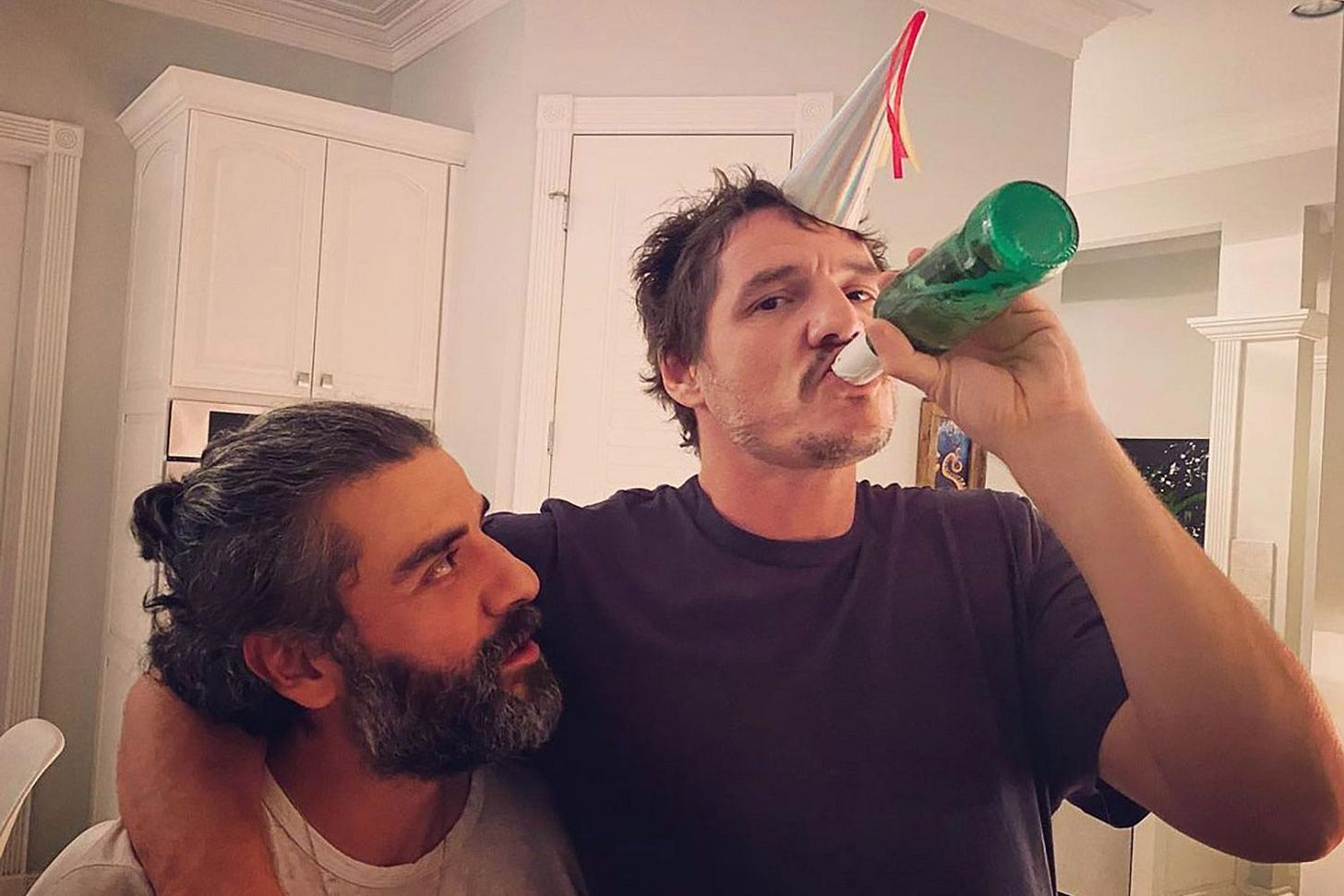
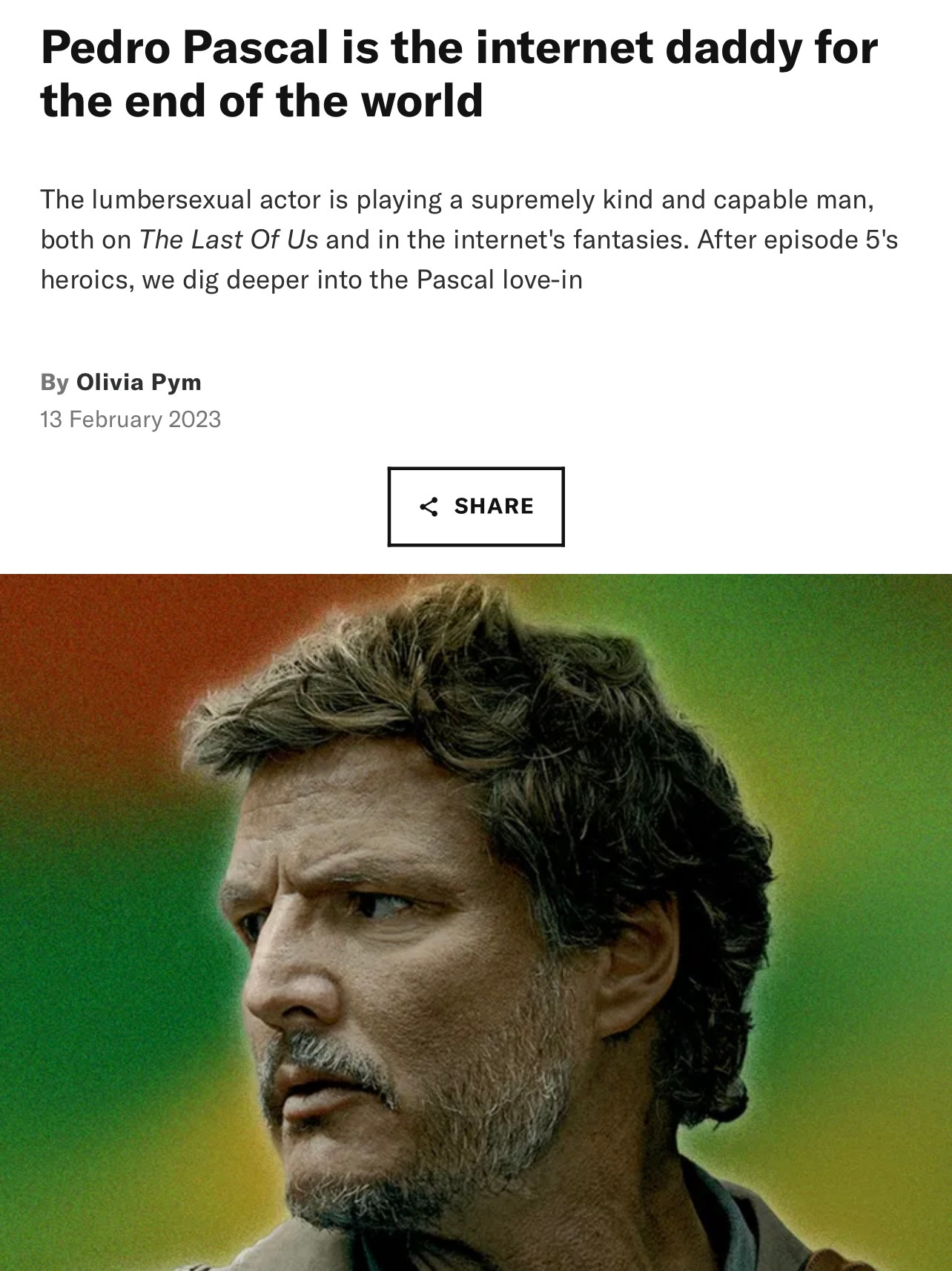
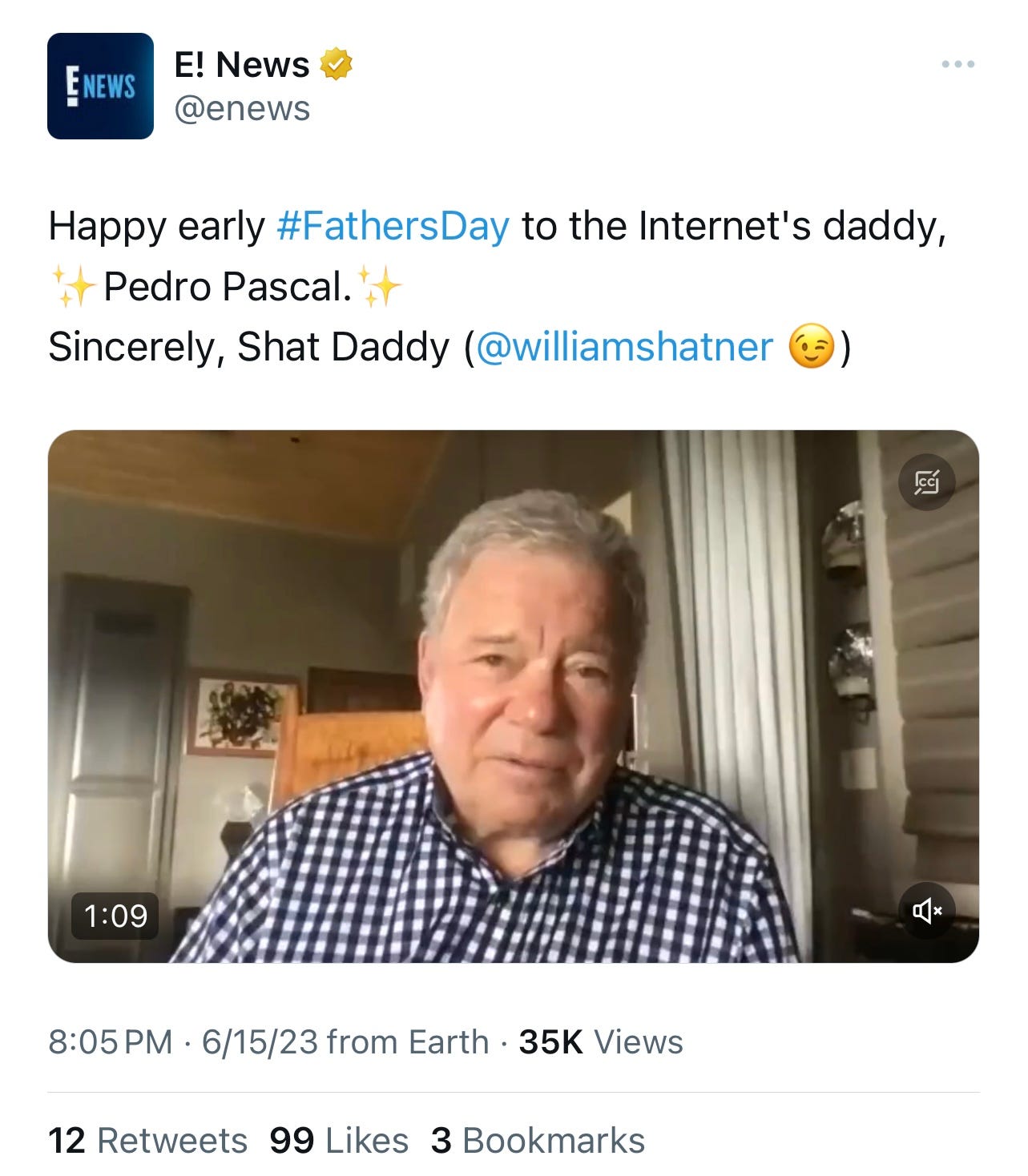
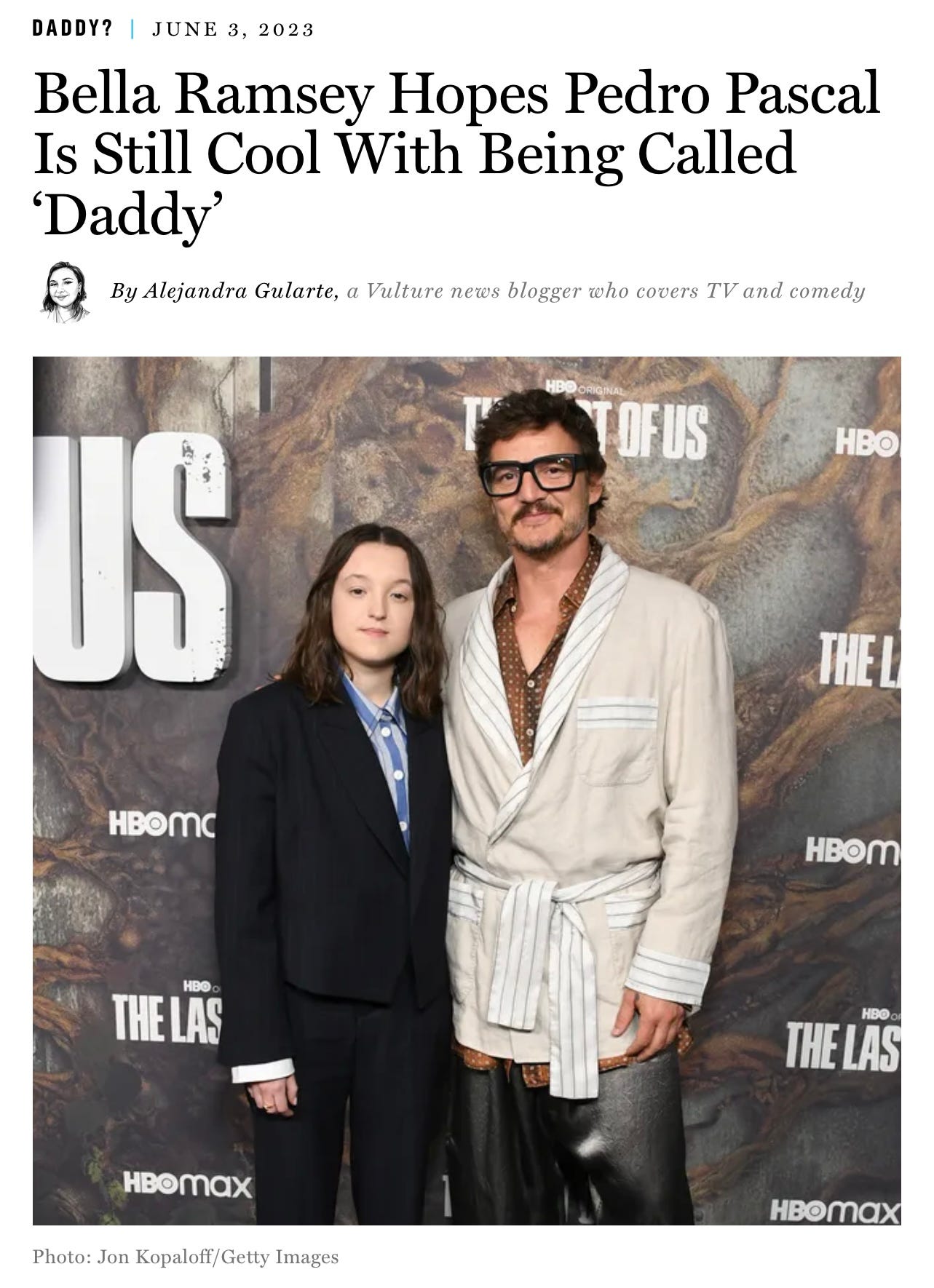
This is so well written and explains the current trend of fetishization of latinos in media. I also loved the part about Laz Alonso and how the fetishization allianates black latines.
This is absolutely the one... you did an excellent job explaining exactly how uncomfortable I've felt seeing this whole surge of latine fetishization towards miguel online. As a latina who's been catcalled with "mami" by white boys and someone who's been asked if i'm colombian just because somebody saw encanto and they know i'm latine (i'm cuban) i feel really seen with this. Great article!!